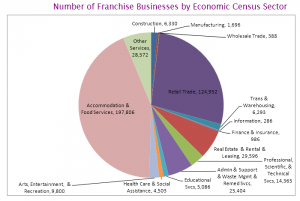Don’t Have a Big Idea but want to be on Your Own?
Joining a franchise system might be the best thing for you if you want to be a business owner but not from scratch. A franchise might work if you:
· Are drawn by the security of having an already-branded business with proven services or products.
· Like the idea of an operation that has already done the hard trial and error work of establishing business operations and building a demonstrated support system.
· Are comfortable with following franchise guidelines.
· Already have or can get the franchise fee and startup costs.
· Are willing to part with some of what you make in the form of monthly royalties, advertising fees and other costs.
· Know it will take a lot of work and are willing to do it.
Even if you’re okay with these factors, it’s a good idea to hire an attorney that specializes in franchising to help you see it all the way through.
Ten Things to Beware of from a Potential Franchise
If having a franchise does appeal to you, be wary of franchises that:
· Do not offer a proven business concept coupled with a successful operational system.
· Lack brand recognition.
· Have a history of litigation or continual strife with franchisees.
· Offer minimal startup help and little ongoing training and support.
· Advertise very little if at all.
· Balk at territory exclusivity
· Are reluctant to give you a list of former and current franchisees.
· Use franchise fees to pay for selling new franchises.
· Obligate you to purchase services, inventory or supplies from their approved vendors (or the franchise itself) at inflated prices.
Being a franchisee can result in a fruitful work life. Just make sure you perform proper due diligence.









